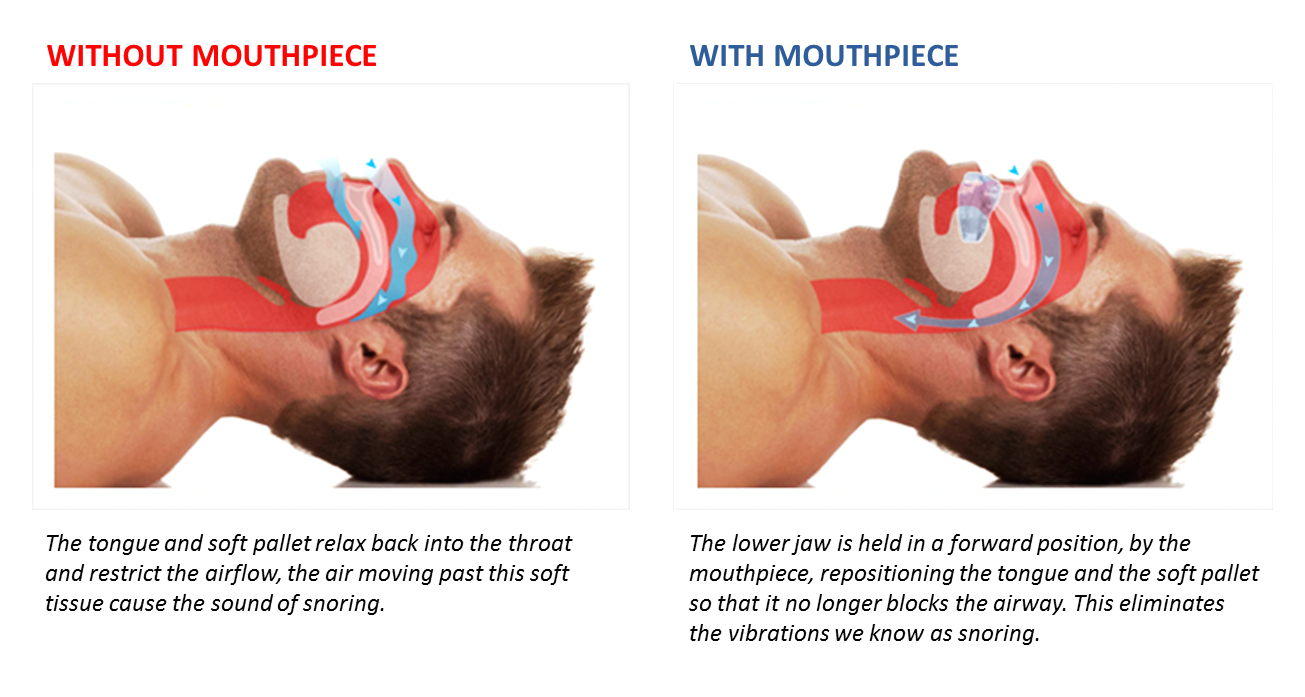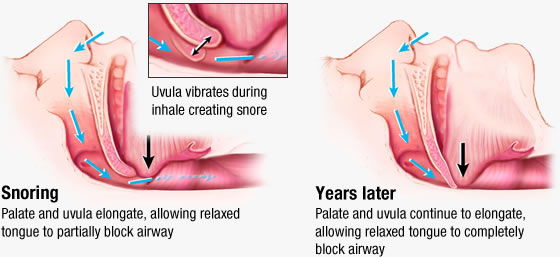Surgery for Snoring and Obstructive sleep apnea
Obstructive sleep apnea (OSA) is a serious health condition characterized by a repetitive stopping or slowing of breathing that can occur hundreds of times during the night. This often leads to poor quality sleep and excessive daytime sleepiness. Risks of untreated sleep apnea include high blood pressure stroke, heart disease, and motor vehicle accidents.
A variety of surgical and non-surgical options are available for the treatment of snoring and sleep apnea. Medical options include positive pressure (i.e. CPAP), oral appliances, and weight loss. Many of these treatment options depend on regular long-term adherence to be effective. In patients having difficulty with other treatments, surgical procedures for the nose and throat can be a beneficial alternative. Surgical therapy can also be effective when used as an adjunct to improve tolerance and success with CPAP or an oral appliance.
What Causes Snoring ?
The noisy sounds of snoring occur when there is an obstruction to the free flow of air through the passages at the back of the mouth and nose. This area is the collapsible part of the airway where the tongue and upper throat meet the soft palate and uvula. Snoring occurs when these structures strike each other and vibrate during breathing.
In children, snoring may be a sign of problems with the tonsils and adenoids. A chronically snoring child should be examined by an otolaryngologist, who may recommend a tonsillectomy and adenoidectomy to return the child to full health.
Facilities Available
- Medical and surgical treatment of snoring and sleep apnoea.
- Detailed airway tract examination identification of obstruction sites through drug induced sleep endoscopy (DISE) sleep study at our in-house Level 1 lab and dynamic MRI.
- Surgical procedures starting from simple septum deviation correction to more complex tongue base and jaw procedures aided by world class surgical armamentarium including.


